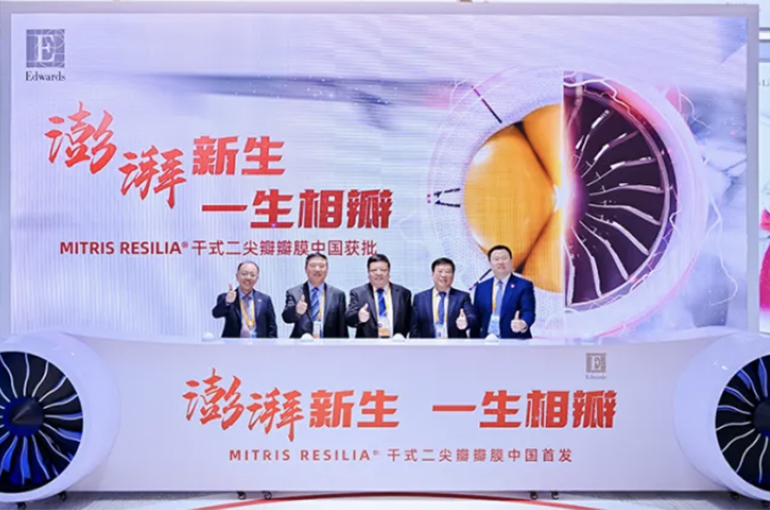
(Yicai) Nov. 8 -- Edwards Lifesciences will accelerate the introduction of new cardiovascular products into China after the approval of Mitris Resilia mitral valve replacement, the general manager of the American heart valve manufacturer said during the 7th China International Import Expo.
Edwards Lifesciences is committed to engaging more closely with medical professionals and business partners in the region, Ben Cheong said during the ongoing trade expo.
Mitris Resilia marks a significant milestone as it addresses a critical demand among around 25 million Chinese patients affected by heart valve diseases, some 60 percent of which suffer from mitral valve issues, said Cheong. The device, also approved in the United States, Japan, and Canada, has generated extensive clinical data demonstrating its potential to improve patient outcomes.
Doctor Training and Public Education
Edwards Lifesciences aims to introduce additional cutting-edge products from the global pipeline to China, such as the Pascal system for mitral regurgitation, as well as annuloplasty ring Physio Flex, and aortic valved conduit Konect Resilia, per the GM. Ensuring a holistic approach, the company integrates top-down and bottom-up strategies to enhance both physician partnerships and public awareness, Cheong added.
Since launching the transcatheter heart valve Sapien 3 in China four years ago, the medical device maker has established around 10 centers of excellence and trained nearly 4,000 cardiothoracic surgeons. These initiatives underscore the firm’s commitment to elevating healthcare standards. Collaborations with medical experts from the US, Europe, and Asia further reinforce the firm's aspiration to provide superior care for Chinese patients, Cheong added.
At this year's CIIE, Edwards Lifesciences signed memorandums of strategic cooperation with drugmaker China Resources Guangdong Pharmaceutical and Sinopharm Group United Medical Device, further enhancing its collaborative efforts.
Restoring Heart Health for an Aging Population
Heart valve diseases claim between 100,000 and 150,000 lives annually in China, prompting the company to prioritize public health education to address both low treatment rates and frequent misdiagnosis. Stakeholders are important as they can help Chinese people become more aware of what heart valve disease is, what the treatment options are, and where to get treatment, said Cheong.
Heart diseases are becoming more common due to population aging. China is expected to have an increasing number of 40.2 million patients with heart valve diseases by 2025, highlighting an urgent need for enhanced medical solutions, said Wang Chunsheng, professor and director of the Department of Cardiothoracic Surgery at Zhongshan Hospital, Fudan University.
Empowering healthcare providers and offering advanced therapeutic solutions is critical in confronting these evolving health challenges, Wang added.
Editor: Emmi Laine